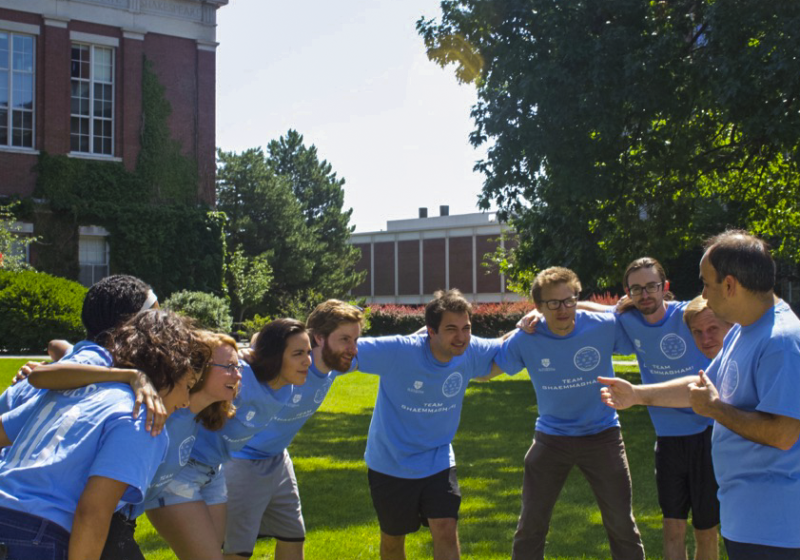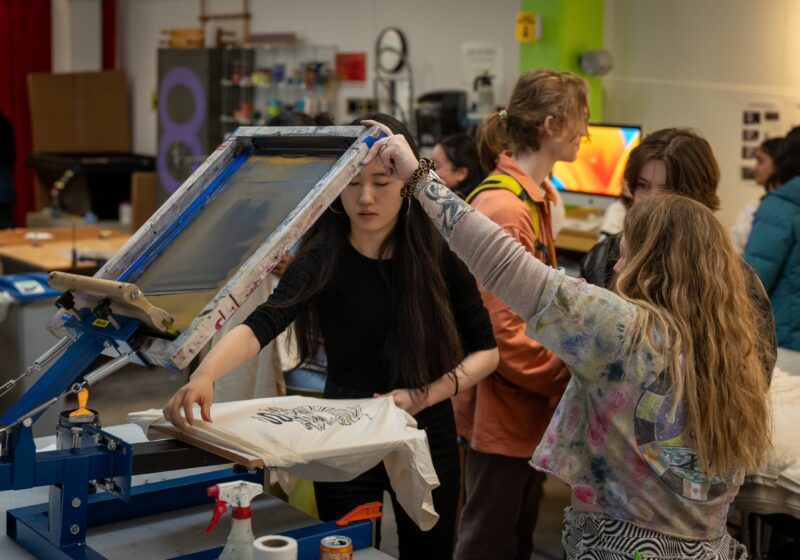A common misconception shared by many undergraduates is that research is reserved for the sciences. In fact, research at UR spans nearly every discipline, and there are opportunities for students of all majors and interests. Each department has its own set of resources and faculty to guide motivated undergraduates. I spoke with professors from linguistics, biology, and history to provide a partial representation of the research diversity at UR. Though their interests differ, these faculty offer similar advice and encouragement regarding research involvement and success.
“Linguistics straddles natural science, social science, and humanities,” said Dr. Maya Abtahian, an assistant professor in the linguistics department. Abtahian observes changes in the local Rochesterian dialect. Both of her students, senior Julianne Kapner and Take Five Scholar Graeme McGuire, are involved in community engagement as part of their projects. “The fun thing about linguistics is that the data is all around you,” Abtahian said.
Dr. Elaine Sia, a professor in the biology department, is interested in yeast mitochondrial DNA. She encourages undergraduates to influence the course of research in her lab. “You get to be involved in the direction,” Sia said. “There’s no expected outcome, so there’s the potential for real interesting surprises.”
Dr. Sina Ghaemmaghami, an associate professor in the biology department, studies protein folding and homeostasis. “I love being around people of different ages and in different parts of their career,” Ghaemmaghami said. “I really enjoy having undergrads in the lab, and I think that’s something that’s really special about this university.”
As the director of the Humanities Center, history professor Dr. Joan Rubin encourages and supports undergraduate research in the humanities and humanistic social sciences. “We’d like it to expand as a home base, and we welcome students to hang out here and come to our programs,” Rubin said. “We want to be as open as possible to the undergrad community.”
Professors are quick to debunk the myth that GPA is a limiting factor for students interested in research.
“It’s not about GPA for me,” Sia said. “I usually look for students who can clearly articulate their motivations. The independent study project is very self-directed; it’s whatever you make it. It’s totally different [than coursework].”
But some coursework introduces concepts at the heart of research. “We have fewer opportunities in linguistics for students who have not yet taken any classes in the department,” Abtahian said. “I usually recommend that students take at least one class to find out what their interests are and then start talking to professors.”
“It’s really difficult to do something meaningful unless you make the time in your schedule for it,” Sia said. “Don’t rush into it too early. Make sure you get a good foundational knowledge.”
Sia praises research experience for building persistence, problem solving, and troubleshooting — skills applicable to any career. “No matter what somebody wants to do with their future, those skills with be useful,” she said.
For example, pre-med students can get significant benefits from participating in basic research. “A lot of medicine is moving towards research-based solutions,” Sia said. “It’s important to learn how to interpret data and form your own conclusions.”
“At the end of your project, you’ve learned problem-solving skills, honed your writing skills, learned how to assess evidence in a way that goes beyond what you learn in the classroom, and you’ve had fun,” Rubin said. “You’ve learned the experience of discovery.”
Ghaemmaghami advises undergraduates to focus on the culture of a lab, even more than the research interest, and stay open-minded to working on an unfamiliar topic. “Being with a good mentor is just as important or more important than the topic being studied,” he said.
“I would argue that no two lab experiences are going to be the same,” said Sia. It is not uncommon for students to work in multiple research labs over a few years, and many undergraduates pursue research at other universities during the summer.
What are the characteristics of a successful undergraduate researcher?
“A good attitude and willingness to learn,” Ghaemmaghami said. “Students are going to make mistakes. Be fearless of that.”
“Energy, persistence, and at best, creativity,” said Rubin. “The most exciting [projects] for me are the ones in which students take the framework of a course and apply that to new materials in creative ways.”
“Be as knowledgeable as possible about what your interests are and what your skills are,” said Abtahian. “Take something you already know about and look at it in a different way.”
In addition to acknowledging the benefits they receive from research, undergraduates should appreciate their potential to generate meaningful data.
“What you’re doing with your hands actually matters,” Sia said. “It’s really valuable.”
“We have a number of students who are making contributions to the field,” said Abtahian. “They come up with things I wouldn’t have thought of.”
Working in a collaborative environment, it’s crucial to share ideas and suggestions. In fact, an inexperienced perspective can be helpful to more senior scientists.
Sia agrees. “In labs we can get quite isolated,” she said. “We try to keep on top of new advances, but students will bring something new.”
Rubin spoke of the variety of independent research opportunities.. “Ask a professor to take you on; ask if she or he can use some help with a project,” she said. “You can also pay attention to which courses have research as part of their requirement.”
“The benefit to the department is that they become centers of active learning,” Rubin said. “As teachers, we want our students to learn as much as possible [through] critical thinking, writing, problem solving, analysis, and synthesis.”
Undergraduate research benefits the student, the University, and the field at large. “Everyone should try to find ways of getting involved,” said Abtahian.
“I love every aspect of academia,” said Ghaemmaghami. One of the things he loves most is the absence of a strict hierarchy; in an academic lab setting, undergraduate contributions are heard and respected. “If you’re an undergrad and say something smart, people pay attention to you.”
Correction (12/4/18): An earlier version of this article and its image caption incorrectly stated that Sina Ghaemmaghami is an assistant professor. Ghaemmaghami is a tenured associate professor.





